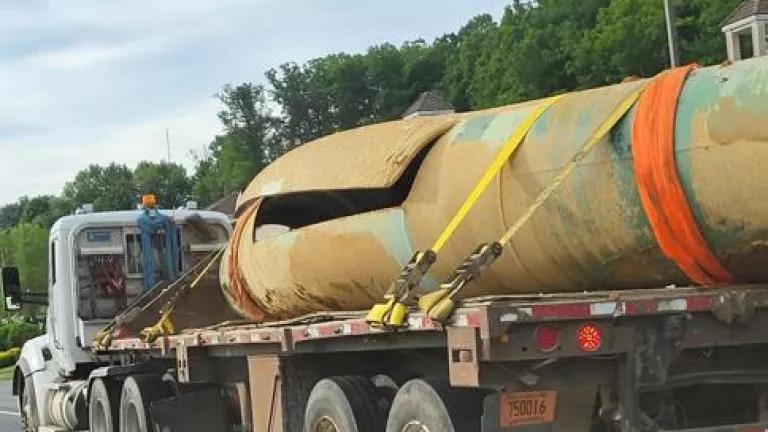The Virginia Department of Environmental Quality (DEQ) recently recommended approval of the Atlantic Coast Pipeline (ACP) and Mountain Valley Pipeline (MVP). The agency recommended that these pipelines receive certification under the Clean Water Act that they will not violate Virginia’s water quality standards. DEQ officials made this recommendation despite the risks to clean water across Virginia, including rivers, streams, drinking water reservoirs, and wetlands.
Fortunately, VA DEQ is not the final decisionmaker on these pipelines. That responsibility lies with the Virginia State Water Control Board, which consists of seven Virginia citizens.
The Board has the authority to make a certification decision under the Clean Water Act for these pipelines, and can only make a certification if it has “reasonable assurance” that the pipelines would not violate Virginia’s water quality standards. As I outlined in a previous blog post, the Board does not have the information or analysis it needs to determine whether these two pipelines would violate Virginia water quality standards. Therefore, under the law, the Board has no choice but to deny the certifications for these two pipelines.
As proposed, MVP and ACP would cross Virginia waters, including headwater streams, rivers and wetlands, nearly 1,400 times in Virginia alone. They would cross additional waterways in West Virginia and North Carolina.
What’s at risk? One example is the City of Roanoke’s water supply. The City estimates that increased sediment in the Roanoke River from MVP would increase water treatment costs by at least $36 million per year, and potentially much more. Sediment associated with the pipeline is pollution in and of itself, but can also contain industrial pollutants like PCBs. In addition to threatening drinking water, this pollution places at risk a federally endangered species, the Roanoke logperch.
Another example is the City of Staunton’s Gardner Spring recharge area. The spring supplies more than 50 percent of Staunton’s water and also provides water outside the city limits, to residents of Augusta County. Staunton has invested millions of dollars so this spring can supply homes and businesses in both the city and the county with drinking water, an irreplaceable resource.
These threats are not idle.
In Pennsylvania, construction of the Mariner East 2 pipeline contaminated the drinking water source for 15 families earlier this year.
In Ohio, construction of the Rover pipeline has violated the law 19 times this year. Most recently, on November 16, 200 gallons of drilling chemicals spilled into the Black Fork Mohican River, where there was 50,000-gallon spill in April.
In West Virginia, Dominion (the company behind ACP) was cited for 13 water pollution violations along three pipelines in three counties, impacting 17 different streams.
Virginia DEQ made the wrong decision when it recommended that MVP and ACP be approved. The State Water Control Board should make the right decision.



